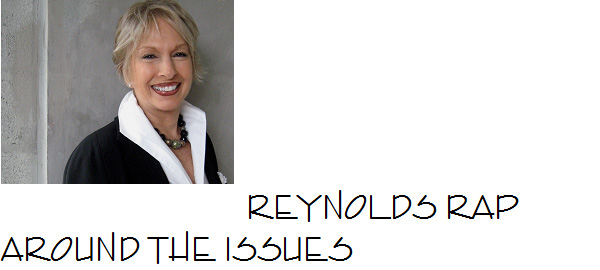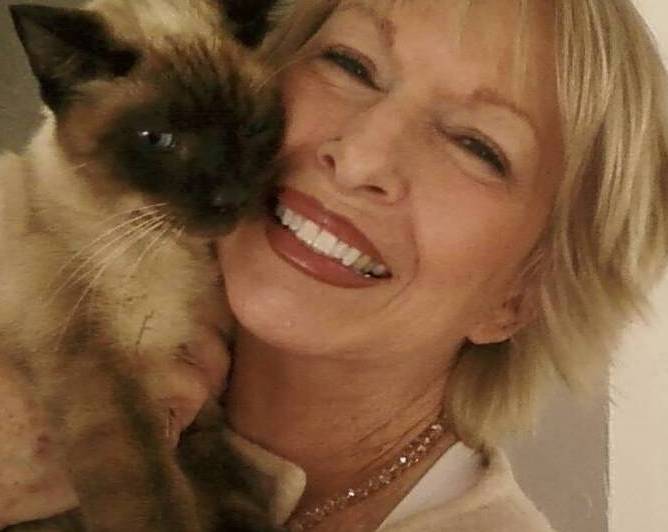 Webster characterizes fear as ‘an unpleasant often strong emotion caused by anticipation or awareness of danger’ which puts this powerful emotion at the very core of desire for self-preservation. Sometimes this means we feel a need to protect our physical beings. Sometimes it expresses our struggle to achieve a sense of security or maintain good feelings about ourselves. As a life component, fear starts as a little trickle across our newborn minds. By adulthood, it has become grooved into our beings – bit by bit – into a powerful but silent underpinning. Thus, being afraid can feel normal to many of us to the point that calm or peacefulness may feel foreign or just plain uncomfortable.
Webster characterizes fear as ‘an unpleasant often strong emotion caused by anticipation or awareness of danger’ which puts this powerful emotion at the very core of desire for self-preservation. Sometimes this means we feel a need to protect our physical beings. Sometimes it expresses our struggle to achieve a sense of security or maintain good feelings about ourselves. As a life component, fear starts as a little trickle across our newborn minds. By adulthood, it has become grooved into our beings – bit by bit – into a powerful but silent underpinning. Thus, being afraid can feel normal to many of us to the point that calm or peacefulness may feel foreign or just plain uncomfortable.
Certainly, there are many times when fear is appropriate and useful – helping us to protect ourselves, even survive difficult times. However, because there is so little support in our society for healthy expression of fear, many of us have become controlled and manipulated by unnamed, repressed fear. In fact, for most of our lives, we work to confirm rather than relieve our fears. Unless we begin to conquer such free-floating anxiety, it can become an unassailable barrier to living life to its fullest. In other words, while fear is certainly a necessary component for the survival, it needs to be in good balance to the rest of our emotions.
Here are some ways to start identifying and defusing our fears:
1. The High Cost of Fear.
Fear has many faces and, while there are universal dangers or threats that can spark terror in all of us, fear is unique to and defined by each of us, individually. The degree to which we live ‘in’ fear – instead of accessing it when appropriate – determines how much we rob ourselves of rich experiences that can make life meaningful. Fear can seriously inhibit our creativity, work performance, relationships, the very way we live. A fear-based life can cripple our ability to compete and can result in unnecessary self-defense and paranoia. It can lead us to becoming prisoners of negative thoughts that present a dim and uncertain future. It produces false courage which is just one disguise of fear. Intimidation, aloofness or withdrawal are often masks for fear. And, because our bodies cannot tell the difference between the real or the imaged, unwarranted fears cause as much physical damage as the real thing. In his book “Waking the Tiger,” Peter Levine talks about how the repression of fear creates an energetic blockade in the body/mind that affects all areas of function. That many symptoms develop around the ‘freezing’ or repression of this necessary emotion, both physical and psychological, which will be relieved only upon the successful resolution and expression of it. Certainly fear is necessary for our survival but, this powerful emotion must curbed for it to be healthy.
2. As We Thinketh.
Marcus Aurelius spoke the truth when he said, “A man’s life is what his thoughts make of it.” The fact is, our internal beliefs drive our feelings and affect our actions in either positive or negative directions. While many of the things we fear never materialize – as Mark Twain put it “I’ve lived a long life and seen a lot of hard times…most of which never happened”– it’s equally possible for us to invite unnecessary chaos and trauma into our lives as a result of powerful, negative, fearful beliefs or thoughts. At the very least, we run the risk of becoming the person Lloyd C. Douglas describes, “If a man harbors any sort of fear, it percolates through all his thinking, damages his personality, makes him a landlord to a ghost.” Clearly, overcoming inappropriate, unnecessary fear is one of the greatest accomplishments to which we can aspire. Reaching that goal requires sorting out those fears that are healthy from those that are not. And, it all begins with harnessing our minds.
3. Name It and Claim It.
“From ghoulies and ghosties and long leggety beasties and things that go bump in the night, Good Lord, deliver us!” Maybe we don’t want to admit it, but this oft-quoted prayer proves that we’re all afraid of all kinds of things. In order to successfully deal with our fear, it is urgent that we admit to and examine it. We need to ask how our lives are limited by it and get clear on just what we are afraid of. Those who experienced mistreatment during the formative years are left more fear-prone than most – even, oddly, loyal to their fears. If our subconscious minds and thought patterns are thus conditioned, we view everything through fear’s prism even constructing unreal fantasies to support our way of thinking. We may be unaware of fear as our life underpinning or we may want to deny the fact. We may simply not want to see ourselves in that light. But, identifying our fears is the first helpful step towards overcoming them. We can begin by asking ourselves some critical questions – e.g. what will I not do that I would really love to be doing; does the way I live express or result in self-limitation; am I over-cautious and prone to anxiety or panic; is my overall view of life negative and suspicious. The clearer we are that we have them, the faster we can identify our fears, begin to sort them out and work towards diminishing those that do not serve us well. As Eleanor Roosevelt said, “You gain strength, courage and confidence by every experience when you really stop to look fear in the face.”
4. Follow the Leaders.
As we look for models, it is important to remember that we cannot judge a person by outward appearance or by apparent assets. It is even more comforting to note that many of the most successful people in the world have also been challenged by great fears. The example they provide is that they move towards full expression and actualization of their talents by facing and overcoming their fears. One author put it this way, “Writing is easy. You just sit down and open a vein.” Gifted artist Georgia O’Keefe provided another example, “I’ve been terrified every day of my life but that’s never stopped me from doing everything I wanted to do.” Great people are not the only ones who can choose to be bigger than their fears. We all have that potential. We can begin by identifying and utilizing the healthy components of fear such as genuine excitement. Putting positive focus on feelings of trepidation can fuel our efforts to tackle new and unfamiliar things that attract but scare us. We can recognize fear as a challenge, once met, provided an opportunity to expand our comfort zone. When we use fear to our advantage in this way, it can become an ally.
5. Mantras, Hail Mary’s, Om’s and the Now.
Making our way through our alarm, beating back anxiety and building courage can be facilitated in any number of ways. One very effective strategy is to relentlessly put something in place of fear – e.g. the mind-clearing repetition of a chosen mantra, I am safe in this moment; the focus on a chosen talisman such as a set or mala beads or a special pocket stone that reminds us to take courage; the reverent reiteration of a favorite prayer or sound either bringing calm to our fears. When we take deliberate and well-prepared actions to ease or ward off our fears, we gain energy and strength. We give ourselves a rest from the negative and fearful by temporarily abiding in a quiet, internal, safe place that we have prepared and willingly access when we feel fearful. In the same way that we simply turn on a light to rid a room of frightening darkness, we can rid ourselves of fear by putting concentrated practices in place that redirect us to calming, reassuring thoughts. Allowing ourselves to know that we are okay in the moment is also a powerful strategy. As Mel Brook’s suggested, “Let’s have a merry journey and shout about how light is good and dark is not. What we should do is not future ourselves so much. We should now ourselves more. Now thyself is more important than know thyself.”
6. Tune It Out.
To say we live in uncertain times, that we have no control of the world around us is to state the obvious. What we do have control over, however, is how much access to ourselves we allow that world at large. Reducing fear in our lives requires that we put a deliberate line in the sand and say ‘enough.’ That we invite attitudinal healing into our lives by consciously refusing to live in the land of devastating possibilities. In other words, we have to be willing to stop the constant barrage of terrifying ‘news’ – real or promised – by turning off the television, putting down the newspaper, flipping the radio to Brahms. We simply do not have to cooperate with 24/7 broadcasts of fear and mayhem that can all too easily kick up our fear-based belief systems. Refusing to focus on the sounds of fear is one of the most difficult and courageous things we can do for ourselves. And, it is one of the most rewarding. Speaking out might be even more effective. Case in point, a group of British psychiatrists found that people involved in campaigns and demonstrations experience a sense of euphoria and overall improvement in their psychological well-being that helps them overcome stress, pain, anxiety and depression. In fact, the feelings are so strong as to last for extended periods of time. So, instead of trembling with fear, we can stamp it out. Getting involved with something greater than ourselves helps a lot.
7. Face the Worst.
It has been said that “a brave man is not one who is never afraid. Such a person is only a fool. A brave man is one who though being afraid goes ahead and does what is practical.” While we know that facing fear builds confidence and emotional strength, facing our imagined or projected fears can go even farther. It can simply eliminate them. Many of us hold ourselves back from taking important steps that will improve the quality of our lives because we imagine possible negative outcomes. We predetermine the worst. If we wait to be proven wrong or for fear to disappear on its own, we’re in for a long haul. If, on the other hand, we are willing to go to the end of our fear – looking at every bad thing that could arise out of a particular situation -we are able to more clearly see the reality of things. We also give ourselves a chance to see that – even if the worst happens – we can still survive. More promisingly, once we have thought through or written down our fears, we will be able to acknowledge that most of the tragic outcomes we envision will likely never happen. The key is to pull the cover off the fear and take the mystery and imagining out of it. The happy result is that we are left with more manageable reality.
8. Massage the Fear.
Newsweek Magazine recently highlighted a study conducted by University of Miami’s Touch Research Institute on 60 school children who had been traumatized by Hurricane Andrew. It was found that fear and depression dropped in kids who received 30 minutes of massage twice a week for a month whereas kids who watched a relaxing video showed no improvement. Further, cortisol levels, the body’s marker for stress, declined significantly in the massage group. In addition to physical hands-on or a good workout, there are other ways to massage and alleviate our fears. For example, we can arrange to have kind, supportive people in place to talk to before and after taking difficult but necessary steps. Then, regardless of the outcome, we end up in a positive situation with someone who can help us manage our feelings. Most of all, we can massage the inner message by practicing the frequent return to calming, positive inner dialog.
9. Bring in the Clowns.
Mel Brooks once said, “If your enemy is laughing, how can he bludgeon you to death?” Which is not an entirely new thought if we harken back to the Crusades during which time a satirist would be carried on the shoulders of a soldier in the front line to hurl abuse at the enemy. Unfortunately, this did not always work and the hapless comic was often the first to be killed. However, in the late 50’s, Dr. Norman Cousins proved that laughter, indeed, has great powers to not only defeat fear but to heal. In fact, Cousins laughed himself back to good health from a devastating, typically fatal disease with the help of countless ‘I Love Lucy’ shows. Likewise, comedy, humor, laughter can help us address our fears even during the darkness of times. Take, for example, the courage of comic Christine Basil who – on the heels of September 11 – went out on stage and slowly inched into her monologue, bravely, winding up here, “We’re all sitting there watching the television. That incredible live footage of the plane going through the building. But what they didn’t show is the CNN footage of a red-haired kid in Central Park with a remote control, looking up, saying – ‘Uh-oh, I didn’t think that would happen!’” That’s big, risky stuff. But, it gave her audience an opportunity to laugh, momentarily shake off fear and heal a bit. So it is that, in those few moments when we can laugh at the worst of our fears, the darkness lifts and the enemy is ordered back.
10. Let Freedom Reign.
In America alone, anxiety disorders reportedly affect more 19 million people each year showing us to be a significantly fearful nation. In the face of these statistics, if we hunger for freedom from fear, we must learn how to turn problems into opportunities, blocks into stepping stones and inner power into the conqueror of fear. Joseph Campbell said, “The conquest of fear yields the courage of life. That is the cardinal initiation of every heroic adventure – fearlessness and achievement.” Achieving freedom from fear requires that we liberate our own minds and venture forth. In the words of Dr. Seuss, “If you want to catch beasts you don’t see everyday, You have to go places quite out-of-the-way. You have to go places no others can get to. You have to get cold, and you have to get wet, too.”



 September 23, 2010. 3-4 p.m. Thursday-Saturday.
September 23, 2010. 3-4 p.m. Thursday-Saturday.






 Entries (RSS)
Entries (RSS)